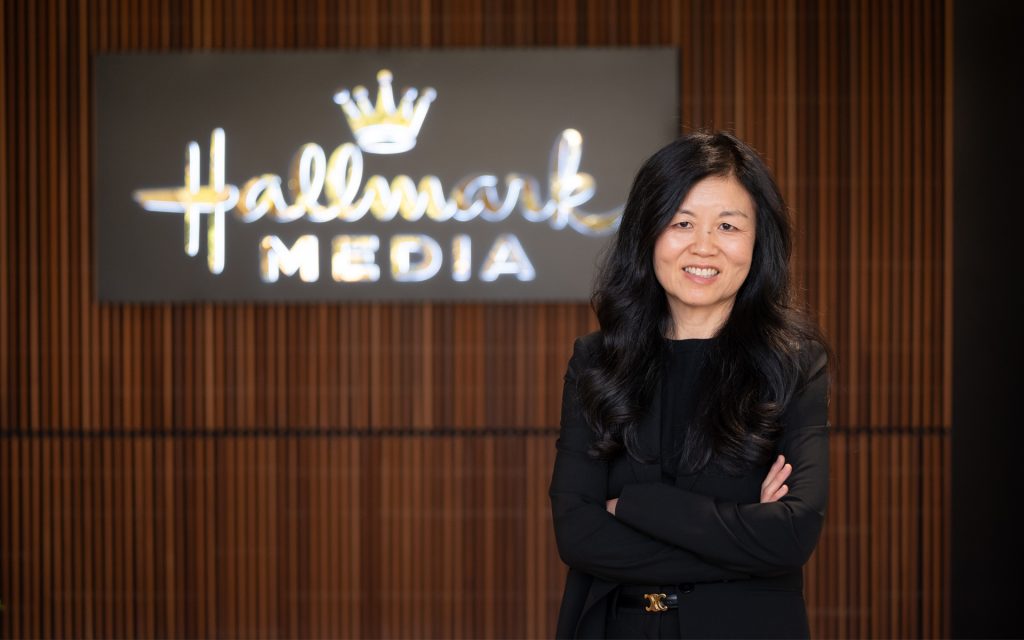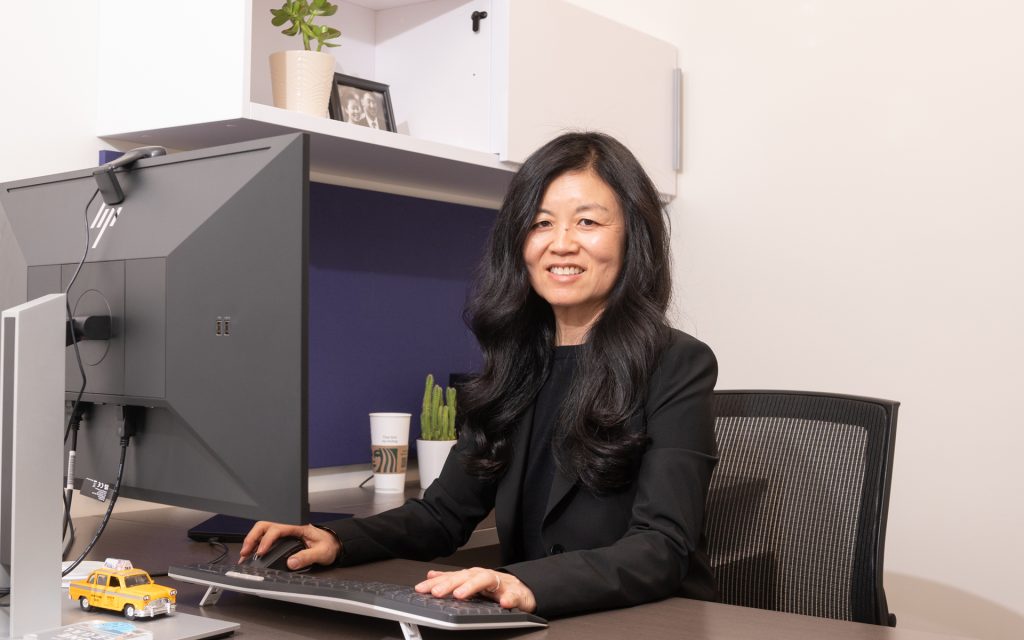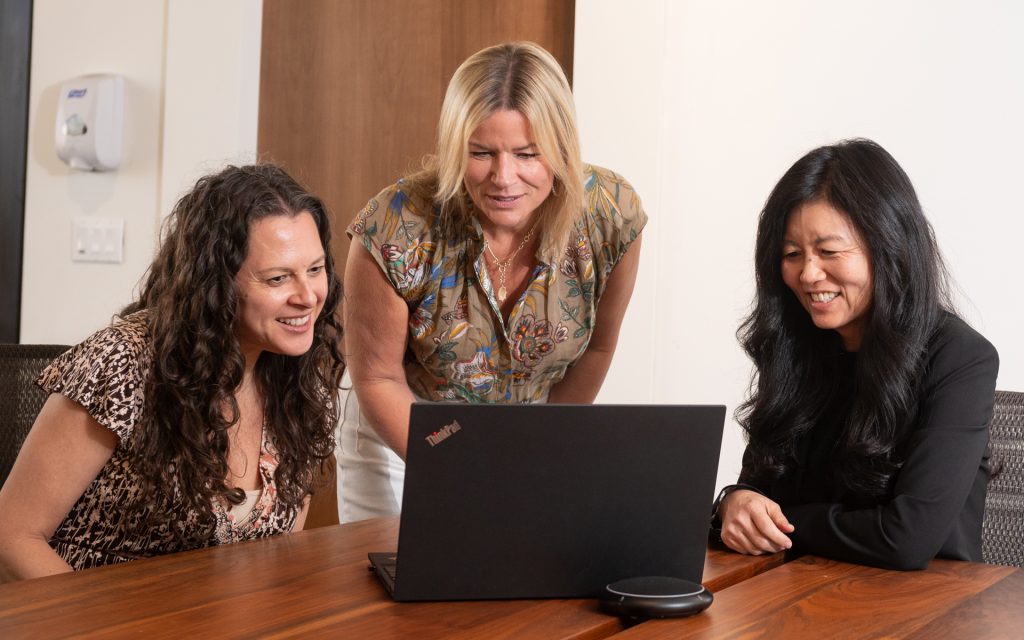
When Leslie Park L’95 was a young girl growing up in a Korean-American immigrant family in Los Angeles, she remembers watching a movie where a female lawyer with a briefcase was walking down the courthouse steps in New York City. It was then that she decided “that’s going to be me one day.”
That moment planted a seed in her that continued to grow. After earning a bachelor’s degree from the University of California Irvine, she decided to pursue law school. Park only applied to law schools in the Midwest or on the East Coast, as she kept dreaming of walking down those courthouse steps. One was the Syracuse University College of Law, which was a lot closer to New York City than California.
“I enjoy being a full-fledged entertainment lawyer. I know how a movie is made, the legal and real-life issues, intellectual property matters, how to handle talent and labor disputes, as well as how to comply with ever-changing privacy laws.”
Leslie Park L’95
Park credits her experience at Syracuse Law for instilling a sense of independence in her that has continued throughout her legal career. It was her first time away from home, and it took some adjustment. Most of the students were from the East Coast with only a few from California. “And, it was so cold!” she says. “The heaviest coat I brought with me was a windbreaker. But, I made it through the obstacles, and I’m grateful that I succeeded in becoming a lawyer.”
After graduating, she did make it to New York City after all, working as an attorney for Sidley Austin LLP and Moses & Singer LLP, as well as corporate counsel for Atari.
But, in 2003, she and her husband decided it was time to move back to Los Angeles to be near family. Park took a job with Hallmark Media (operator of Hallmark Channels and owned by Hallmark Cards, Inc.), as an in-house counsel in charge of corporate and securities filings. Even after Hallmark Cards took the company private in 2016, Park stayed on and assumed an expanded role since she had learned so much about the company and entertainment law in the 13 years. Today, she is the senior vice president of legal and business affairs and assistant general counsel at Hallmark Media.

“I enjoy being a full-fledged entertainment lawyer,” she says. “I know how a movie is made, the legal and real-life issues, intellectual property matters, how to handle talent and labor disputes, as well as how to comply with ever-changing privacy laws. Hallmark Media produces over 100 movies a year on a very tight schedule, and if something falls off the radar on my watch that impacts the business.”
Other responsibilities include negotiating different kinds of commercial agreements to support all aspects of Hallmark Media, including content acquisition, strategic alliance, software licenses, data processing agreements, IP licensing, and various types of vendor, consulting and service agreements, as well as advising management on legal issues related to entertainment and media law. She also deals with privacy and data security, advising on marketing initiatives, global procurement, and research and analysis of FCC and FTC rules.
“Entertainment law is relatively new when you compare it to something like real estate law or estate planning. There is no set checklist on what to do, as the industry is constantly evolving…I like to look at my role as being a pioneer in figuring out this new way that people consume entertainment and the rules of not only entertainment law but the marketplace.”
Leslie Park L’95
The perks of the job are glamorous, too, as she has walked Hollywood’s red carpet, meeting celebrities like Florence Henderson, Jack Wagner and Rick Schroder, who have frequently appeared in Hallmark movies.
Entertainment law has certainly seen changes since she began working for Hallmark Media, particularly in the way the company produces and secures the amount of content needed to keep viewers watching its channels and streaming service 24 hours a day.

“Early on it was just TV, VCRs or DVDs, but today content comes from all over the place. It used to be about working with just a handful of studios, but now there are so many different players in the space, from streaming services like Hulu and Netflix to independent producers and more,” says Park. “Entertainment law is relatively new when you compare it to something like real estate law or estate planning. There is no set checklist on what to do, as the industry is constantly evolving. Now, the same content is being sliced and diced into so many slivers so that providers can sell it both domestically and internationally, and that comes with a host of legalities. I like to look at my role as being a pioneer in figuring out this new way that people consume entertainment and the rules of not only entertainment law but the marketplace.”
“Watching that movie as a little girl, I dreamed of being a strong female lawyer,” she says. “I never dreamed then that I’d accomplish that by working in the entertainment business. I am thankful for the solid foundation Syracuse Law gave me that led to what I’ve accomplished in my career.”
